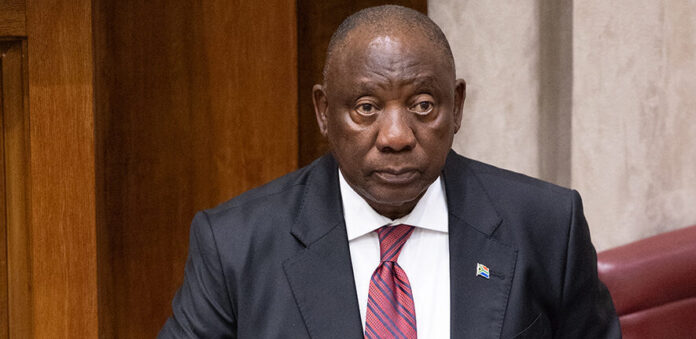Build One South Africa (BOSA) and AfriForum have accused the government of national unity (GNU) of failing South Africans as the US imposes 30% tariffs on most imports.
BOSA spokesperson Roger Solomons said the tariffs also show the rising tensions between South Africa and the US, adding that the US’ move further threatens jobs in the automotive manufacturing, agriculture, and mining sectors.
He said the government should commission an urgent economic risk assessment to measure the impact of tariffs and technology and engage with the US Congress to make the case for trade cooperation using over 500 000 jobs linked to South African trade as leverage.
“Present a credible trade and investment plan that points out the advantages of key export sectors and aligns with US strategic interests, especially in green energy and technology,” said Solomons.
“Appoint a qualified ambassador to Washington who understands the intersection of economics and diplomacy and can lead the high-level engagements needed to restore trust and rebuild lost ground.”
SA’s bipolar approach not sustainable
He emphasised that South Africa’s diplomacy must be led by the state over party politics, and he focused on three core objectives: expanding trade and economic growth, defending human rights, and advancing democracy on the continent and beyond.
“The current bipolar approach, with mixed signals from different actors, is unsustainable and deeply damaging.
“South Africa cannot afford more indecision, ideological posturing, or diplomatic negligence. Our future economic growth depends on pragmatic, clear-headed leadership in foreign policy that puts South African jobs front and centre,” said Solomons.
AfriForum’s head of public relations, Ernst van Zyl, said the government’s failure to respond to US concerns over human rights violations against minorities in South Africa played a critical role in the decision.
“President Cyril Ramaphosa and the ANC-led government must be held directly responsible for the serious negative impact that the US’ new trade tariffs will have on ordinary South Africans,” said Van Zyl.
He said AfriForum and the broader Solidarity Movement had tried to hold talks with the ANC to avoid the imposition of tariffs but were “recklessly sidelined”.
Van Zyl warned that AfriForum would step up its campaign to convince the US to direct any consequences at specific ANC politicians, not the broader population of South Africa.
“The country’s ordinary citizens do not deserve the punishment for the ANC’s misdeeds. Therefore, we will accelerate our campaign to try to convince the US to take action against the ANC politicians who are responsible for this crisis. There is already progress on this front,” said Van Zyl.
Talks continue between SA and the US
Ramaphosa said South Africa continues to negotiate the tariff increase, which will only be effective seven days after August 1.
“In the meantime, the government is finalising a package to support companies that are vulnerable to reciprocal tariffs,” Ramaphosa said.
“The package consists of several measures to assist companies, producers, and workers affected by the tariffs on SA exports to the US.
“South Africa and US trade relations are complementary in nature, and South African exports do not pose a threat to US industry.
“Importantly, SA exports to the US contain inputs from the African continent and contribute to intra-Africa trade.”




